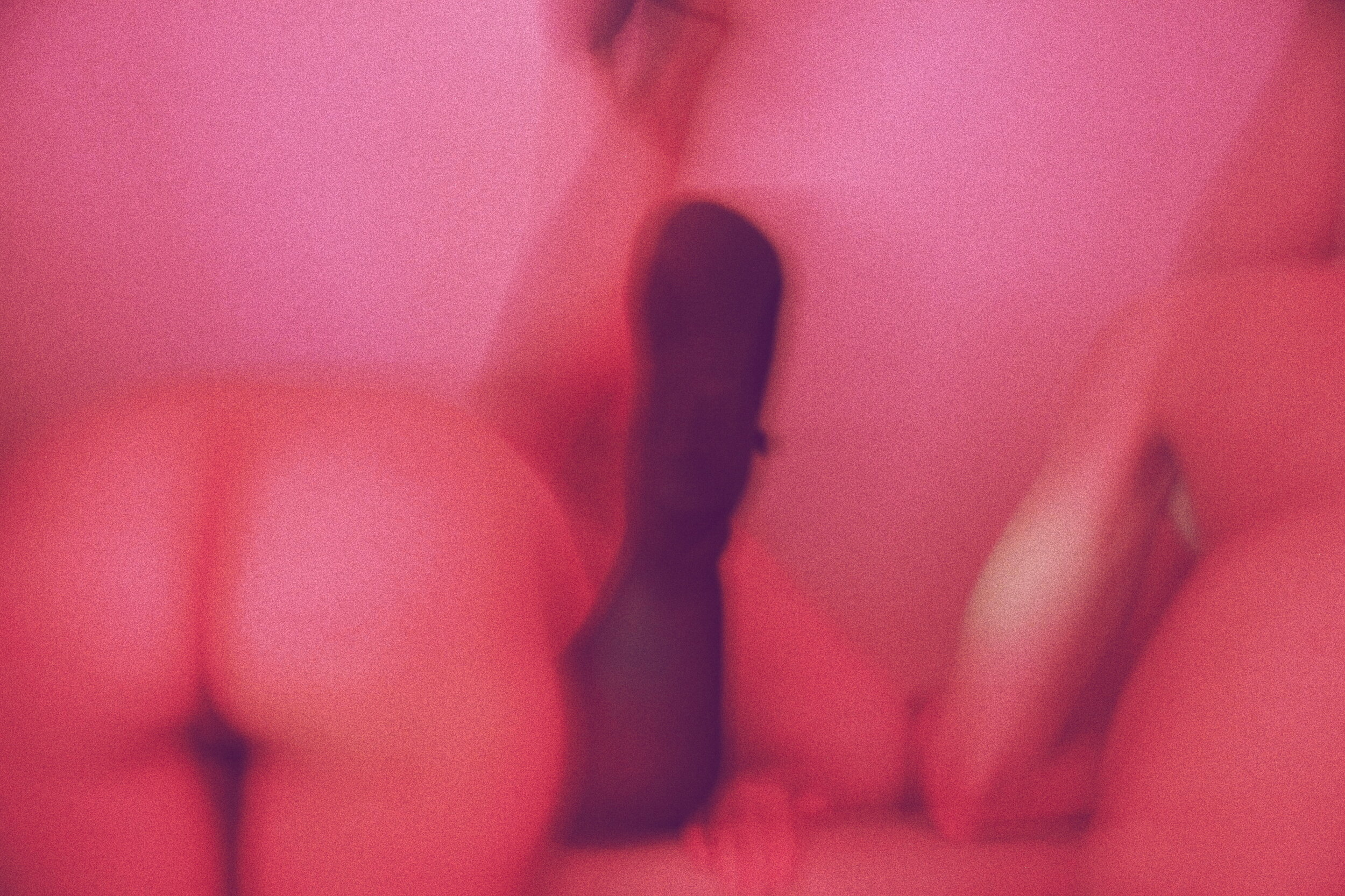Linda Kima Zake
Linda Kima Zake is an artist based in Edinburgh who uses photography and film. Through her work she creates alternative stories to those usually told through images of nude bodies and sex. Her images are a way of liberating her subjects, offering them a new route to body acceptance by making something beautiful and sensual but also raw and erotic – and most importantly, real. In her own words, Kima ‘seeks to explore the positivity and freedom of Scotland’s contemporary kinky and queer community’.
Last year her film Sense Me premiered at Mezipatra in Prague, which is the longest running queer film festival.
Our interview took place over email during the autumn of 2020.
Tell me about your art practice.
My practice is about acceptance.
We live in a world saturated with images that show how things could be – how you could be, how life could be – and they invade our inner world no matter what we do. It makes it easy to think about. All expressions of femininity - femmes, transwomen and women experience this with more heaviness – there is always an expectation around how to look, how to fit in. And in my practice, working together creating portraits or sensual images, I work with people to help them see themselves with love and acceptance. I genuinely love this part of my work – when we get to look at the work we’ve made they raise their eyebrows in disbelief at what they are.
And how did you get started doing such intimate work?
I started taking photos in high school and bought my first camera with the money my dad left me (I still have it). From the beginning I was "recycling reality" around me through photography and I noticed that it had a therapeutic element to it. With a camera, being able to see myself, or sides of myself, created a space for me to accept the reality or myself. I was dealing with being the only non-white person around as I was growing up, including in my own family. Then, my mother’s addiction combined with my dad's suicide rocked my world and I found photography as a tool to rebuild myself. I am always grateful when I can do that for someone else.
A lot of my work is very dreamy and memory-like. Portraits are glitched and manipulated to represent inner feelings more than facial features. This gives the subject freedom to explore their identity and sexuality, replacing mainstream media images in their minds with images of themselves. It creates acceptance, and a celebration of being.
And would you describe yourself as a visual artist that uses a camera?
I am a photographer and filmmaker, and I’ve never understood whether or not that means I can call myself a visual artist.
I started to work with Moving Image in 2016 to explore, as a woman, what my portrayal of sensuality and sexuality would be. My subjects seem to love this and are often eager to participate. Again, replacing the images and ideas dictated by porn (graphic, aggressive, using slurs for tags etc) with images of themselves – sensual, mysterious, celebrating life and body.
I love what you say about rebuilding. I think the idea that in these modern times we all use images to build our identities is well understood – selfies, perfection and such. But you are also talking about using images to help people build inwards. That seems different, like it’s more nourishing.
Do you think that anonymity is important, for the work to be able to do that for people?
Anonymity is a fun one. Personally, I believe in owning up to what or who you are. In a sense I rarely had a chance not to. You can't hide when you look different. It doesn’t need to be inherently good or bad, it just is. And identity is in constant flux, something that comes into being and then passes as quickly as you have formulated or accepted it.
In my practice anonymity became a tool. I am working with subjects that have experienced mental health disorders, traumas and oppression, and expressing such difficult subjects can be very stifling. Our modern world is expanding, vocabularies and understanding are growing, but it still is a challenge to give visibility to untraditional values. Offering plausible deniability or anonymity to my subjects helps them explore sides of their journey, identity, or sexuality. This way they don't have to deny how they look or feel but instead have tangible proof of themselves as they choose.
Does this make sense? I try to work in a way that gives my subjects empowerment – so they can break free from the mainstream narrative, which often can make us feel like we "don't fit in."
It does make sense – through your eyes I can see anonymity as a safe-zone where people can be, in whatever sense they need to be, or they want to try to be. It sounds liberating, like a kind of protection.
"A kind of protection" – yes, you absolutely got it. Whether it's accepting your feminine or masculine sides or seeing that those sides live within you in equal parts, or coming to terms with your sexual desires. Or honestly, a very simple one – women and sex are somehow still up for debate, from the body, to performance, to pleasure. And, if we look just at the body and ask questions around how the women in my photos have arrived at self-realization, many would share stories of difficulty in accepting their body shape, because it doesn't fit the media beauty standard, or struggling to be sexually open or fulfilled due to the idea of 'virginity' or some similar narrative. So then to have an opportunity to explore their 'vanity', 'self-love', 'horniness/sluttiness' can be very liberating – (liberating, ha! Maybe that's a delusion of grandeur, but for sure it’s mindset-changing). Often, after seeing their photos or videos, the shame attached to self-appreciation or pleasure starts to be replaced with acceptance. Honestly, it’s a beautiful moment.
And from the other side, from the viewer’s side, where does protection come into play? Your photos include nudity and sexual endeavour and I know you have had difficulty on Instagram. Do you think there is an expectation that we protect one another, from something, when we share images like the ones you make?
Social platforms are tricky for many, many reasons but let's look at nudity specifically, and the dictated 'morality' around it. Social platforms will insist that the censorship of the body or of bodily acts is to protect children. But kids are curious and will find ways to gain the information or experiences they seek if their parents or schools can't provide it.
Funnily enough, the same platforms will distribute ads that objectify the body, using sex to sell. It raises a question around who is benefiting from the censorship. Kids are allowed to look at marketed bodies but not look at real humans, and their real bodies? My deduction is that censorship is for-profit.
Besides, I am not trying to put any sexual endeavours on instagram, but some body folds, low hanging nipples, humans loving their bodies, coming to terms with them and such things. Instagram takes most pictures down, with few warnings your account can also be erased, no back ups etc. Shadowbanning – blocking content in a way that means the creator doesn’t realise it’s been blocked – is a thing and was really bad in the last year. It felt like women were being censored, and it was noticed that women-led accounts were banned more often than men's. Thus my gender on insta is ‘male’.
Honestly, nudes fight capitalism. You can't make a profit off of something that is being given away for free :D A little joke, but seriously, how can a woman's body be objectified and used for sales if you can go and look at a happy authentic body that is not trying to sell you stuff.
Read more about Kima and her work on her website.








